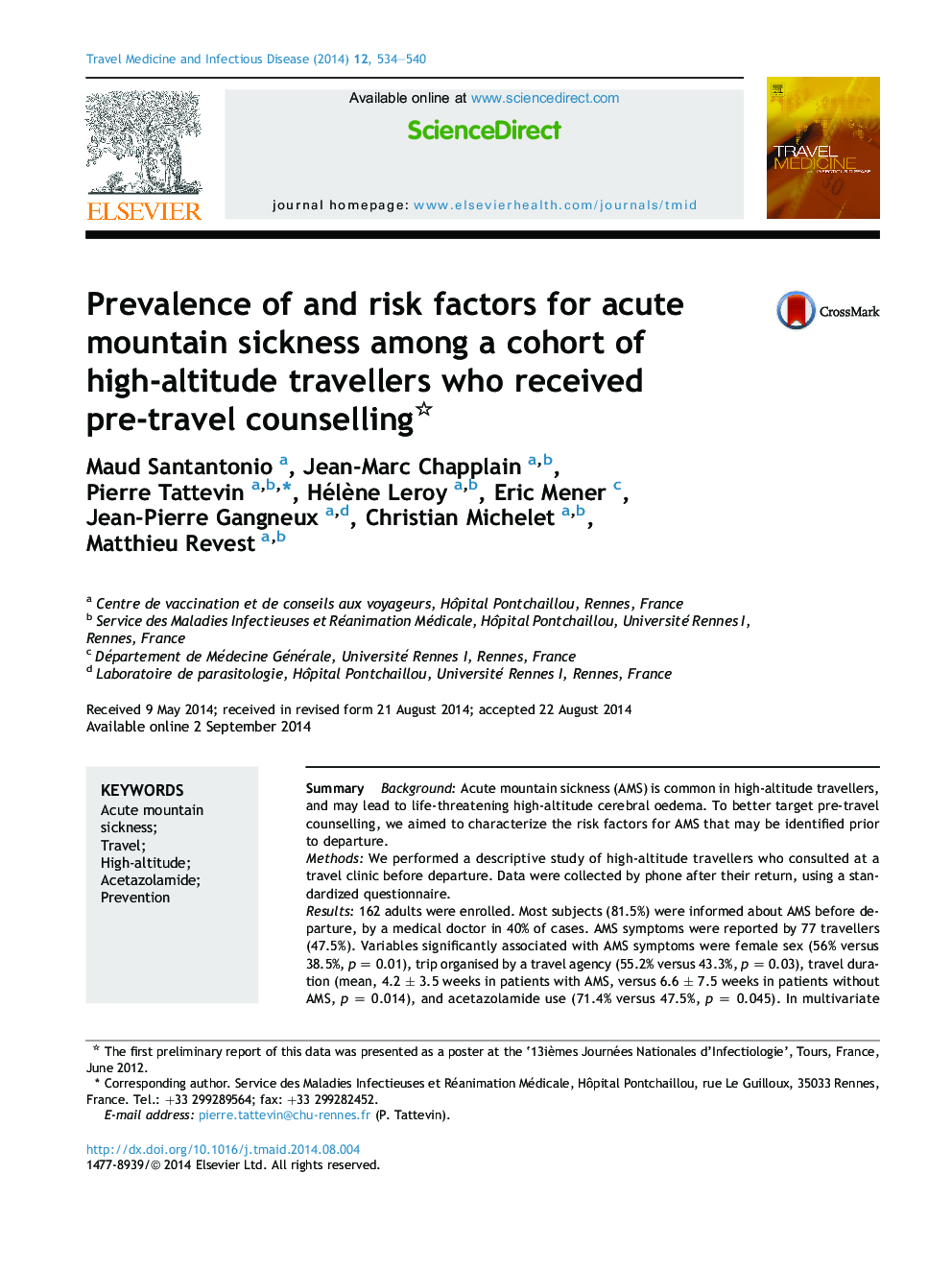| Article ID | Journal | Published Year | Pages | File Type |
|---|---|---|---|---|
| 3392969 | Travel Medicine and Infectious Disease | 2014 | 7 Pages |
SummaryBackgroundAcute mountain sickness (AMS) is common in high-altitude travellers, and may lead to life-threatening high-altitude cerebral oedema. To better target pre-travel counselling, we aimed to characterize the risk factors for AMS that may be identified prior to departure.MethodsWe performed a descriptive study of high-altitude travellers who consulted at a travel clinic before departure. Data were collected by phone after their return, using a standardized questionnaire.Results162 adults were enrolled. Most subjects (81.5%) were informed about AMS before departure, by a medical doctor in 40% of cases. AMS symptoms were reported by 77 travellers (47.5%). Variables significantly associated with AMS symptoms were female sex (56% versus 38.5%, p = 0.01), trip organised by a travel agency (55.2% versus 43.3%, p = 0.03), travel duration (mean, 4.2 ± 3.5 weeks in patients with AMS, versus 6.6 ± 7.5 weeks in patients without AMS, p = 0.014), and acetazolamide use (71.4% versus 47.5%, p = 0.045). In multivariate analysis, only female sex was independently predictive of AMS (adjusted OR 2.15 [1.14–4.40]).ConclusionsAMS symptoms occur in almost half of high-altitude travellers. Women, and travellers leaving for short duration, within trips organised by travel agencies, should be targeted for enhanced pre-travel counselling to prevent AMS.
